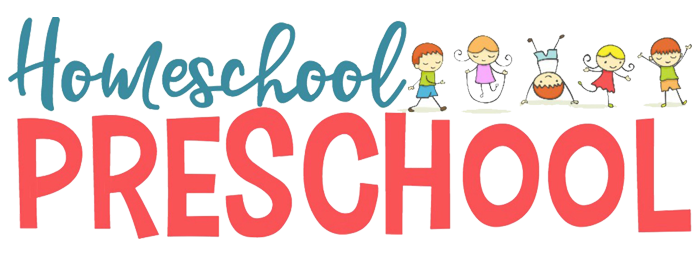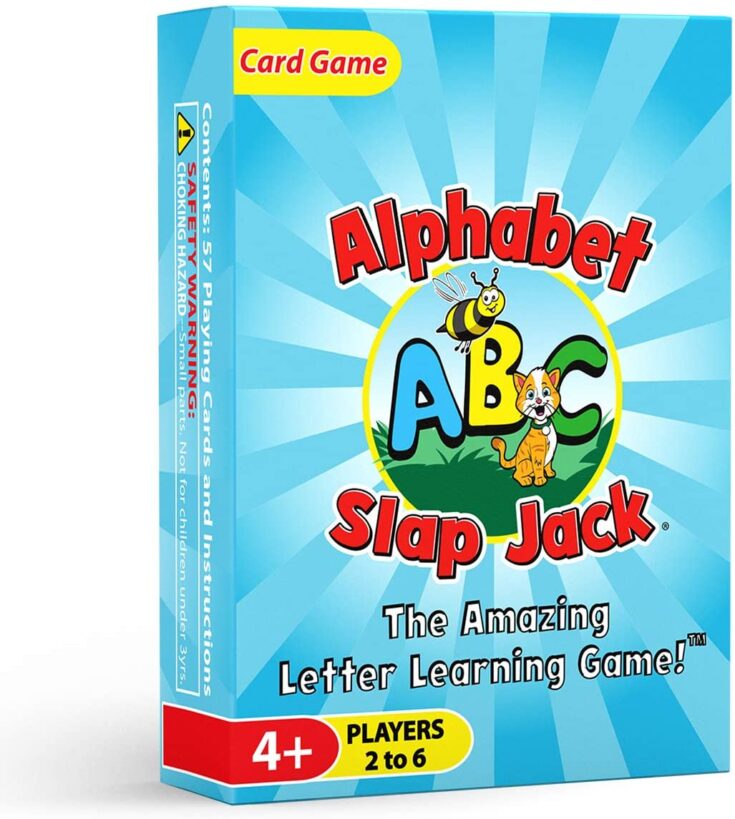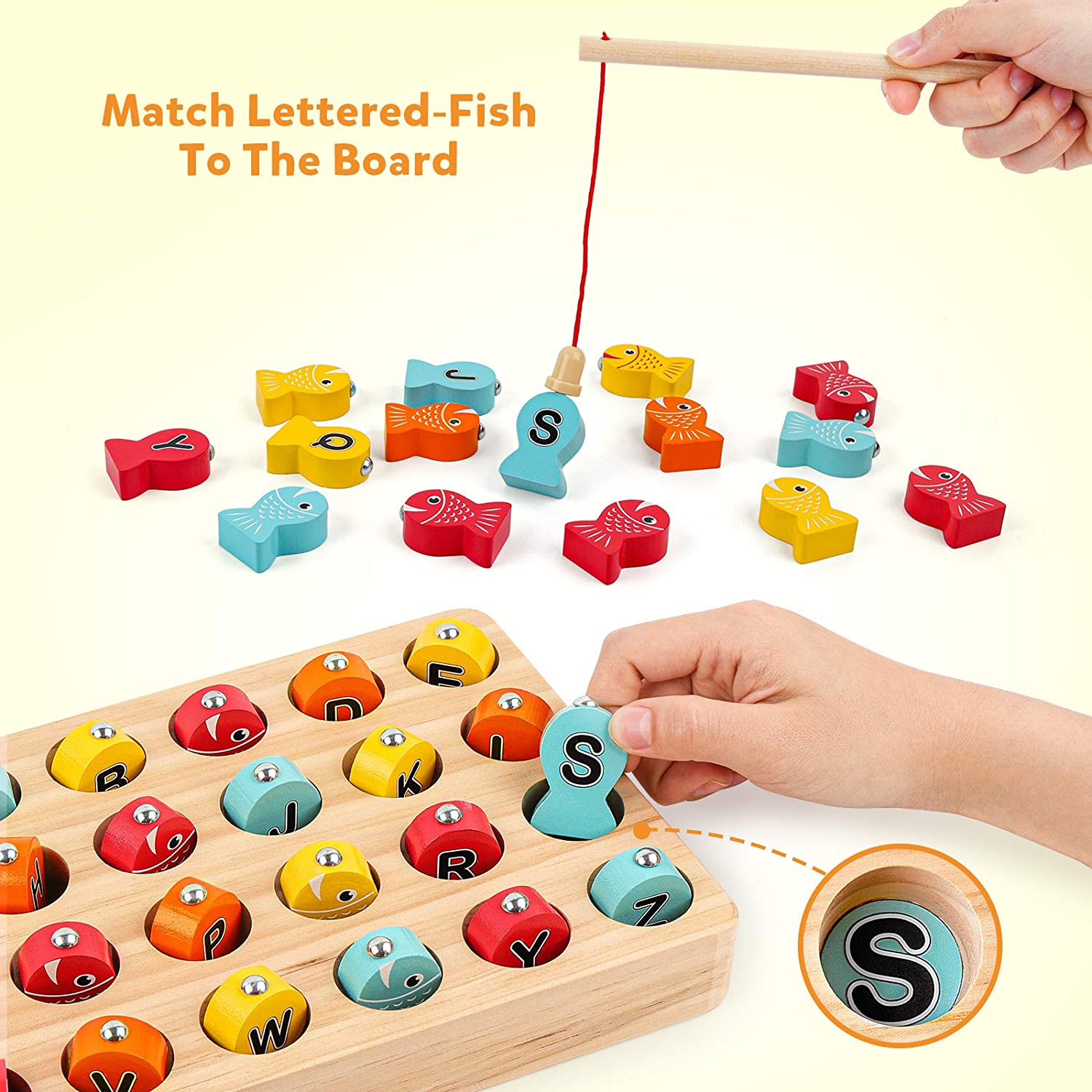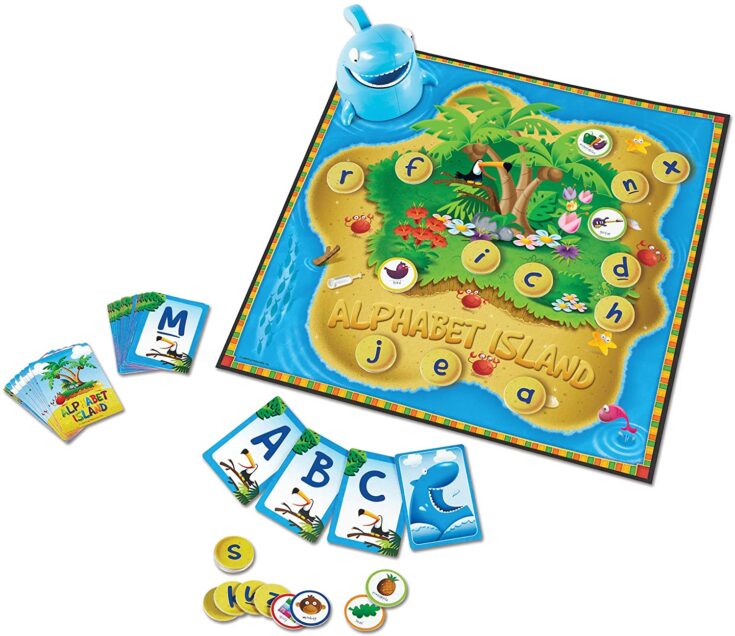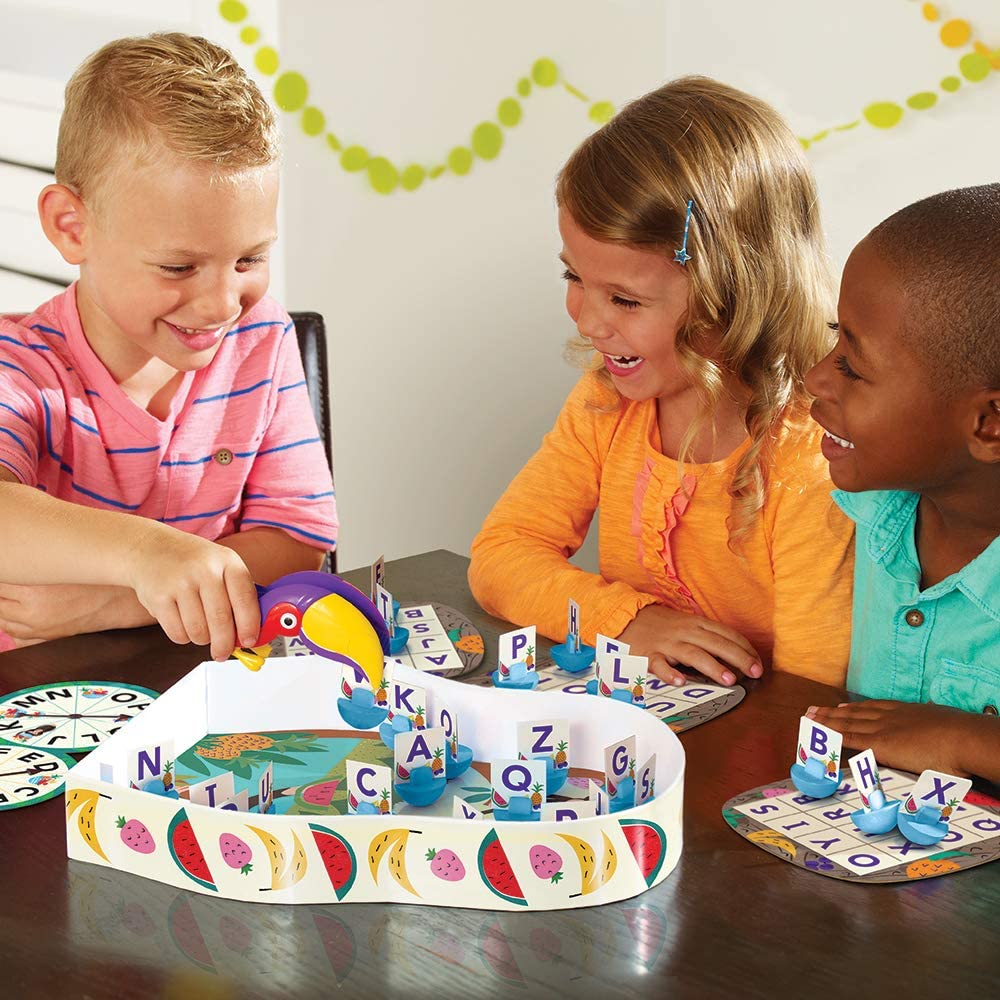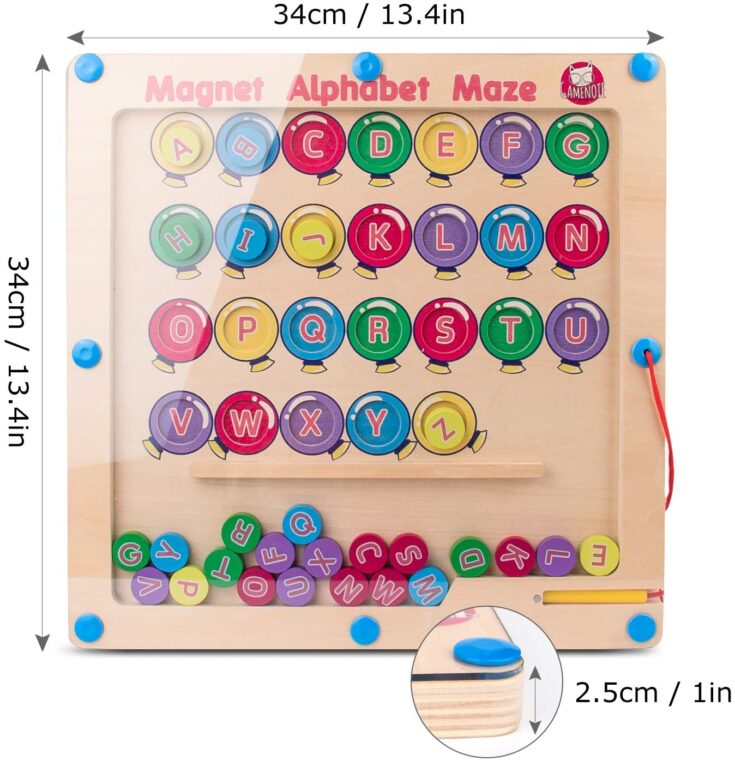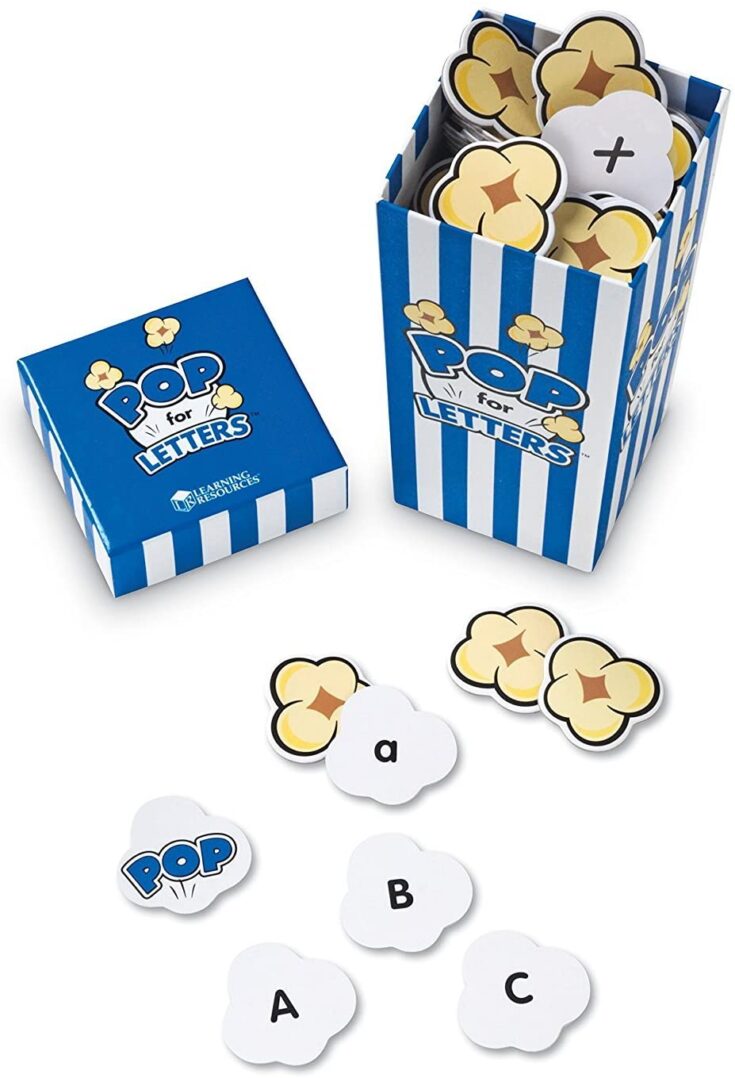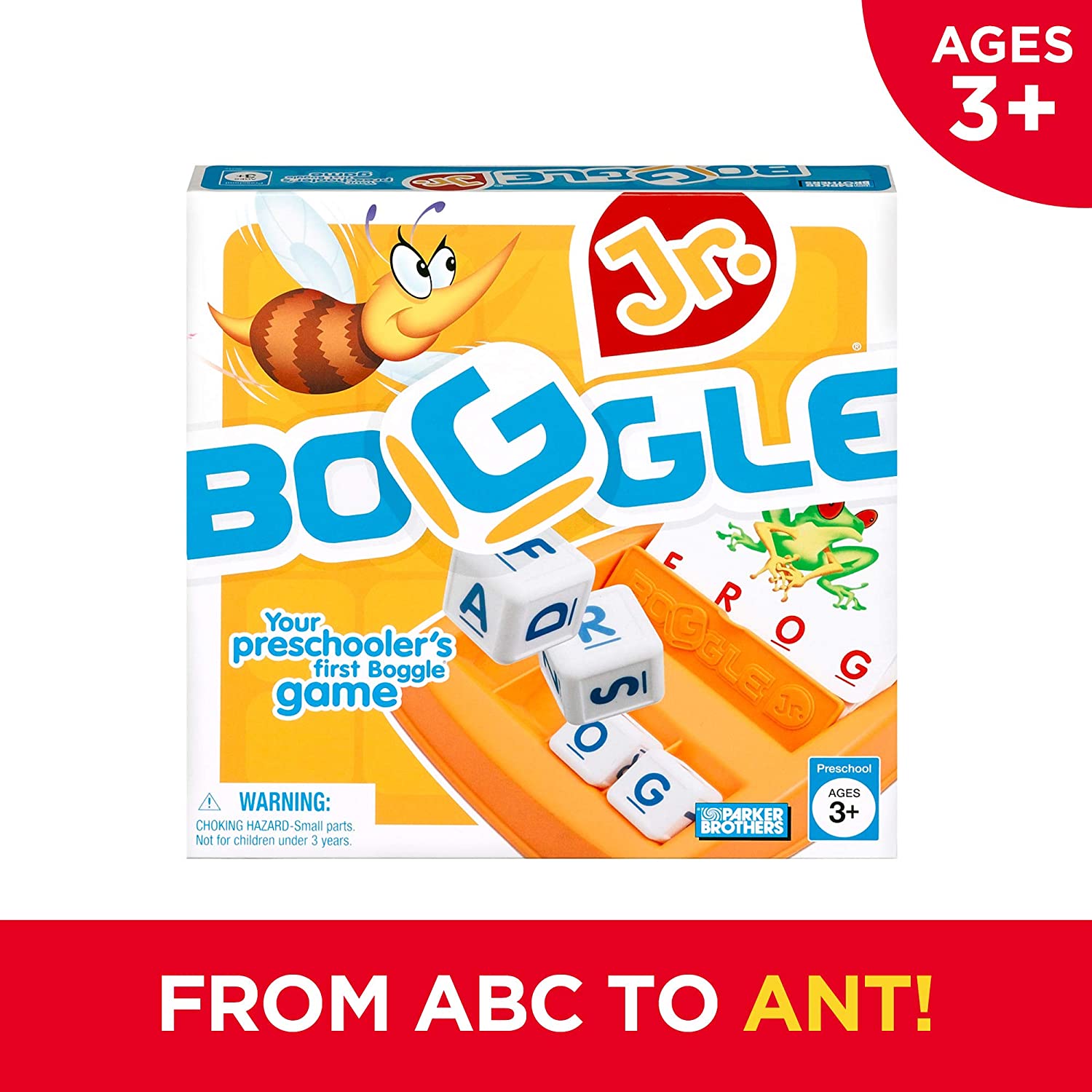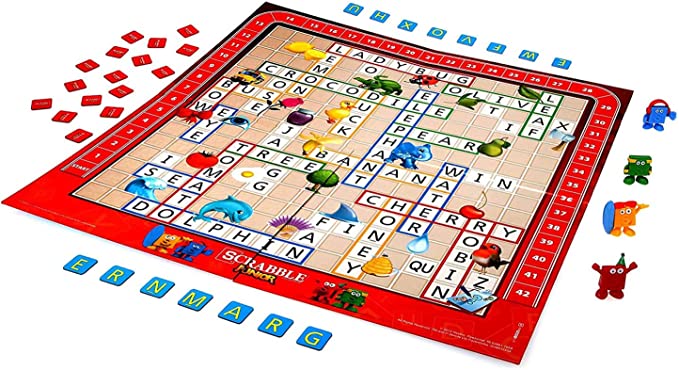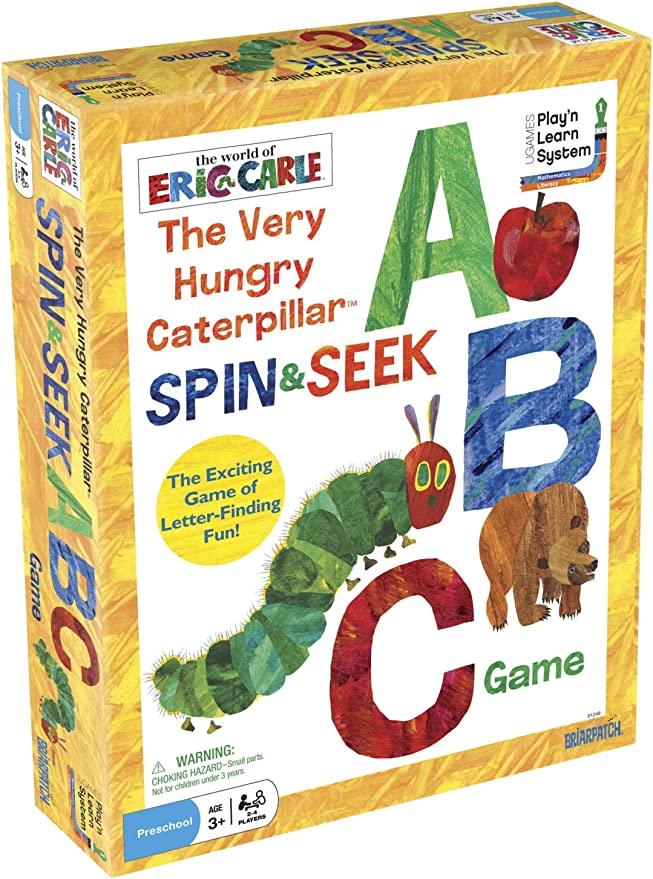Letter Recognition Games
As a parent or teacher of a preschooler, you know how important it is to introduce your child to letters and their sounds.
But sitting down with a book or flashcards can quickly become dull and uninteresting for little ones. That’s where letter recognition games come in!
Fun, interactive and educational, these games are a great way to engage young learners and help them develop important pre-reading skills.
Let’s explore some of the best letter recognition activities for preschoolers that you can easily incorporate into your daily routine.
Get ready to watch your child’s reading abilities blossom!
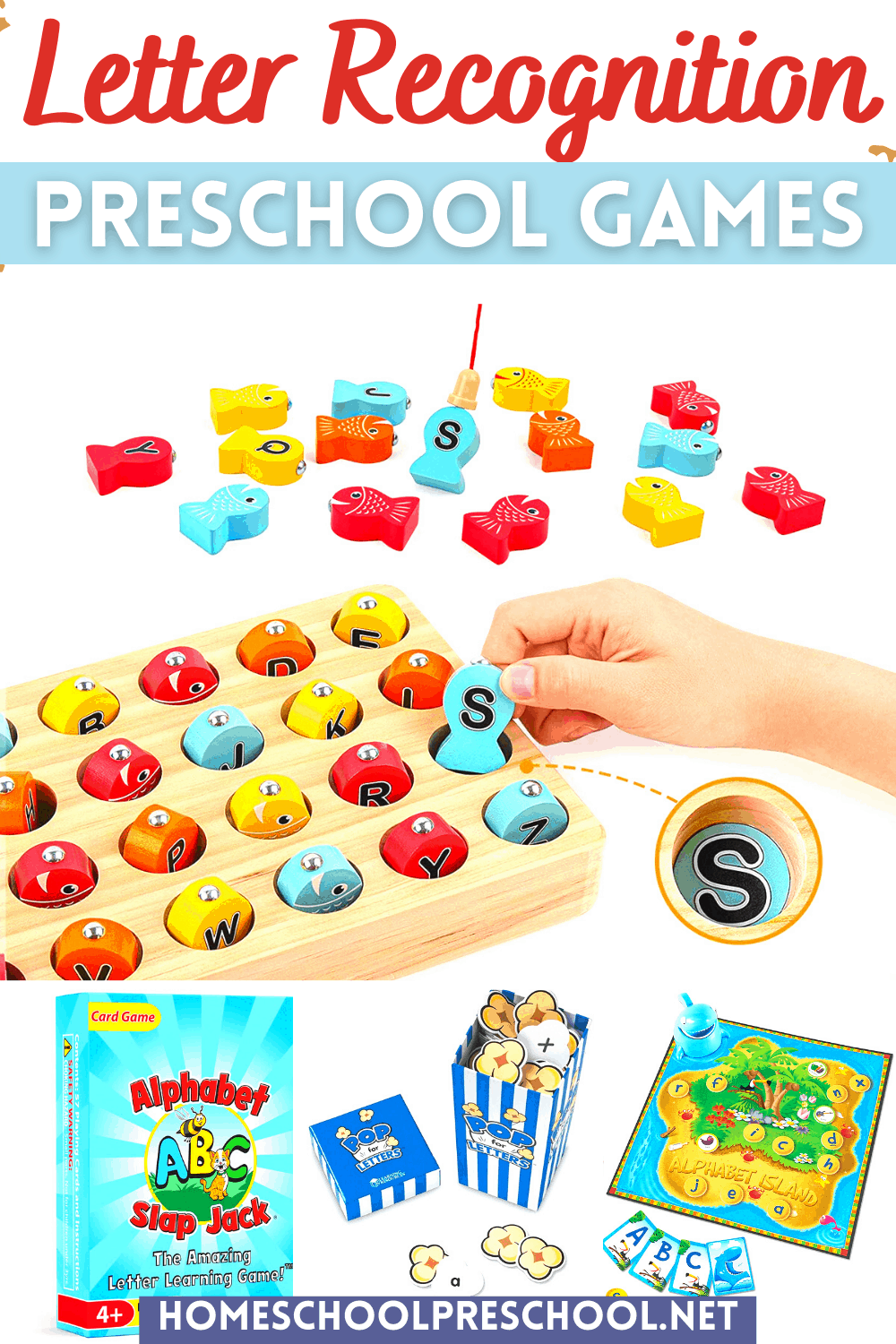
Letter Recognition Games
Board games are engaging and fun for preschoolers. They teach important skills they'll use for the rest of their lives.
Today, I'm sharing some board games that teach letter recognition while they're having loads of fun.
Alphabet Slap Jack helps your child learn their upper and lowercase ABCs while playing a fun card game.
You can use the game’s upper and lowercase letter playing cards in multiple ways.
This magnetic fishing game is not only a fun activity for your little preschoolers, but also is a great toy for learning the alphabet, color recognition!
Race to match upper- and lowercase letters or beginning sounds with corresponding pictures-collect the most letter discs to win!
Spin the spinners and collect the matching letters with your Frida Squeezer.
The first to collect four letters in a row wins! But be on the lookout for monkeys - they'll feast on your fruits!
Kids use the attached magnetic wand to guide each letter into place reinforcing letter identification and alphabet order with every match that they make.
Kids will love pulling popcorn letters out of the bucket trying to find matches, but watch out for the POP card which makes you put all your popcorn back!
Kids can play Boggle {almost} like mom and dad! They'll choose a card sna match the letter cubes to spell beginner words.
Like the Boggle, Jr game above, this Scrabble Junior game is a preschool twist on a fun classic game. Kids will match letters on the game board to spell words.
In the Spin & Seek ABC Game, players spin the spinner and seek for letter cards that match their space.
This game introduces children to the alphabet by teaching them the difference between big and little letters.
Counting skills are reinforced as players move around the board.
Alphabet Books
Alphabet books are a great way to help preschoolers and kindergarteners learn their letters. And they don’t have to be boring, either!
There are all sorts of fun and engaging alphabet books out there, from books that teach the letters through rhyming verses to books that feature adorable animals.
Alphabet books can also be a great way for parents and caregivers to bond with their little ones. Reading together is always a special time, and it’s even more special when you’re sharing a book that’s helping your child learn something new.
So whether you’re looking for a gift for a preschooler in your life or you just want to add some new titles to your home library, be sure to check out some alphabet books for kids!
ABC’s for Boys – This one of a kind, hand illustrated alphabet book combines letters with all of boys’ favorite things–airplanes, dump trucks, and more!
Alpha Oops! The Day Z Went First – It’s chaos! It’s pandemonium! And it’s definitely not as easy as A-B-C! Here’s a snappy story about the comic confusion that comes when the letters of the alphabet, like a class of unruly children, step out of order and show that each one has a mind of its own.
Pinkalicious ABC – A is for Apple. B is for Bubble Bath. C is for Cupcake. What could be better than learning your ABC’s with Pinkalicious in this pinkamazing board book?
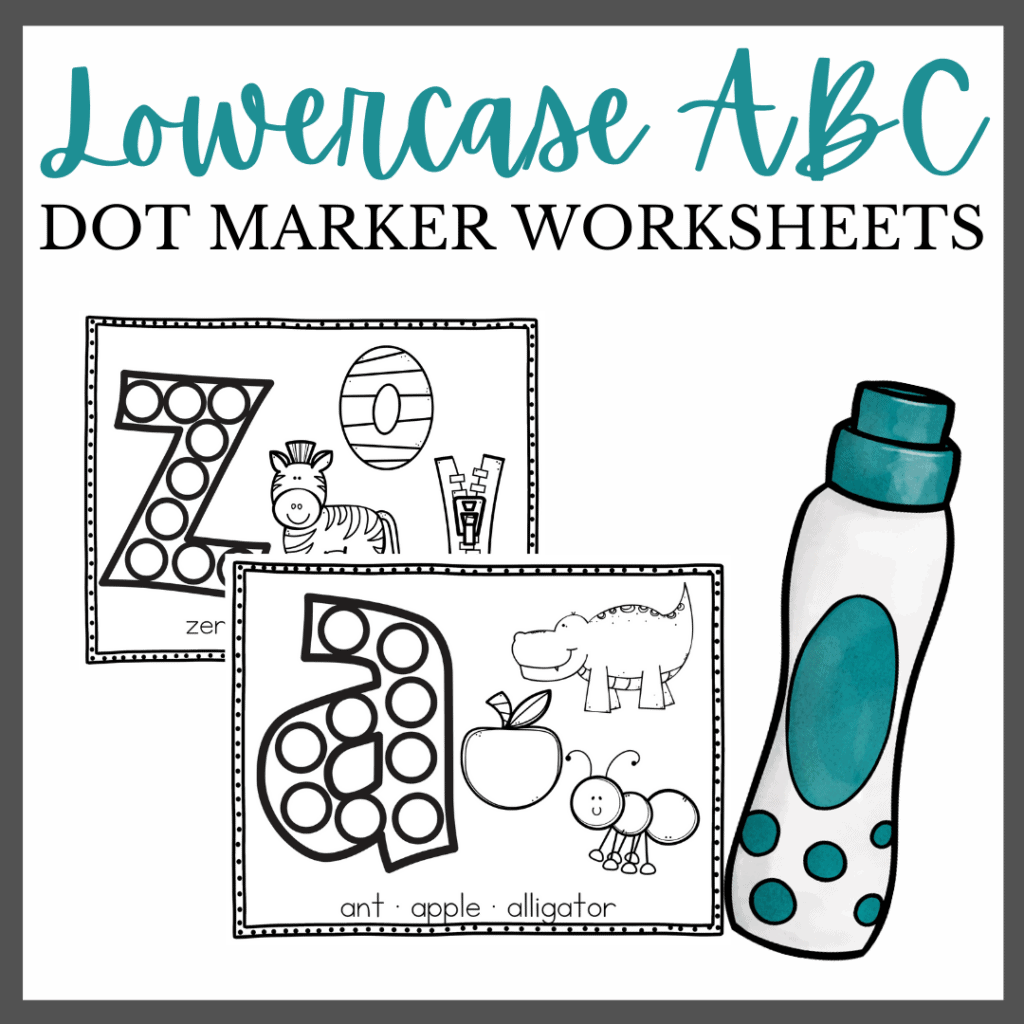
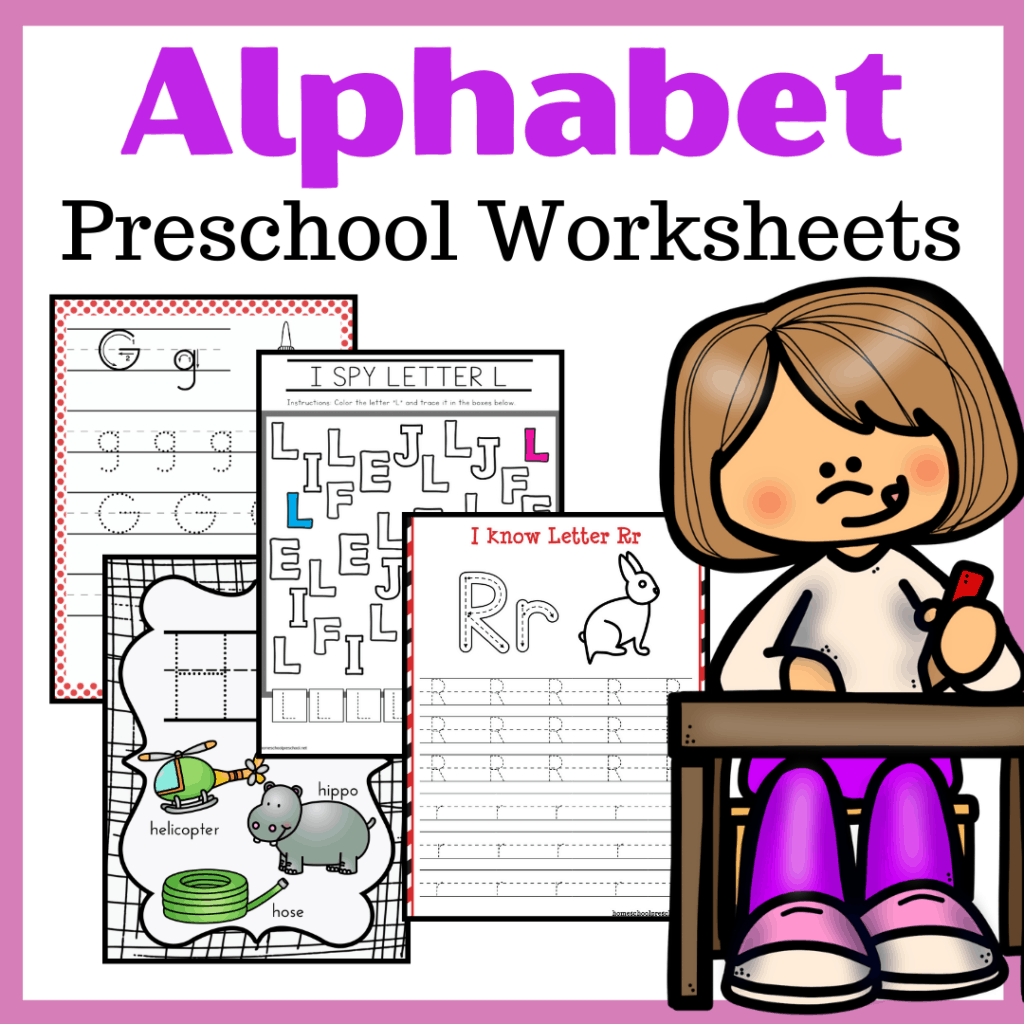
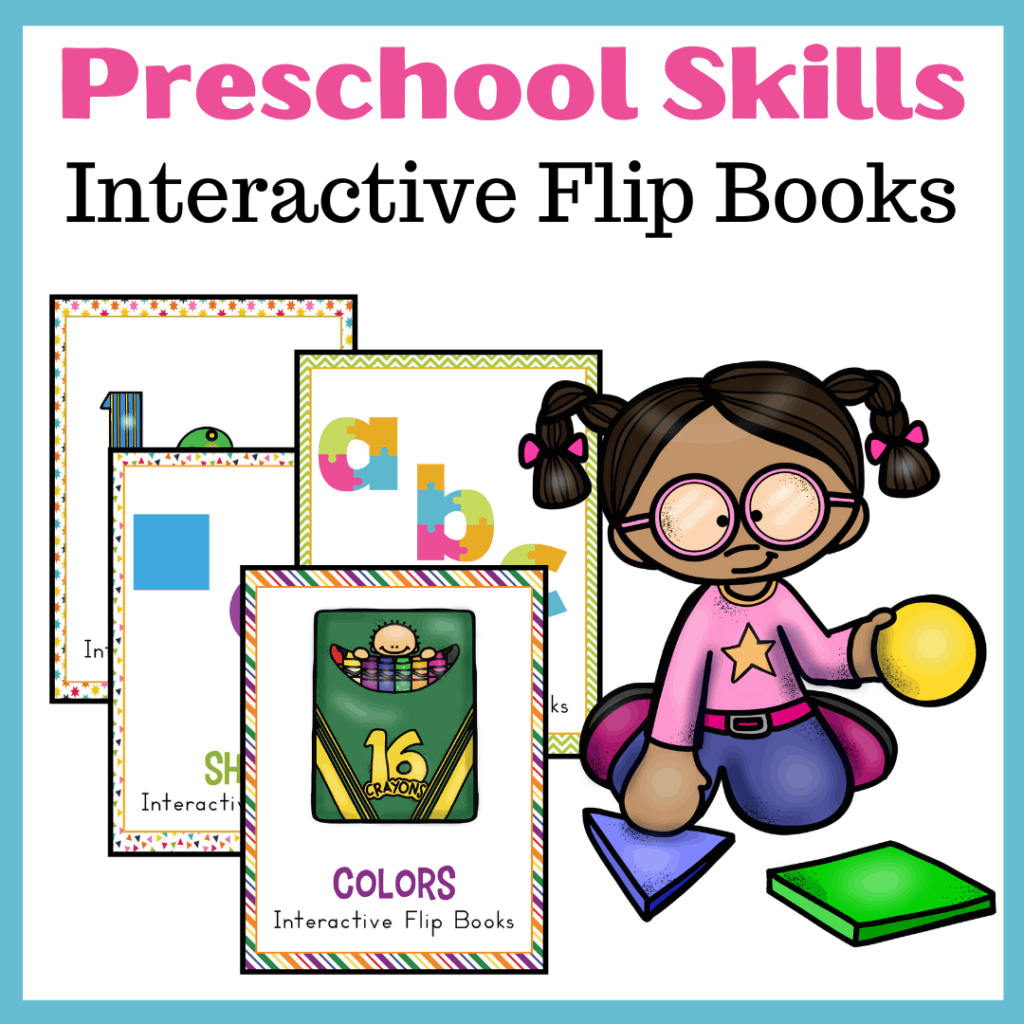
Assessing and Tracking Preschoolers’ Letter Recognition Skills
Assessing and tracking the progress of preschoolers’ letter recognition skills is crucial for both parents and teachers.
Here are some practical tips and ideas to help you in this process:
Observation and Documentation: Set aside time to observe and document each child’s letter recognition abilities. Observe them during activities like reading, writing, and playtime. Take notes on their letter recognition, including their ability to identify letters, associate them with sounds, and differentiate between uppercase and lowercase letters.
Informal Assessments: Use informal assessments to gauge a child’s letter recognition skills. These can include asking them to identify letters in different contexts, such as pointing out letters in their environment or playing letter recognition games. Keep a record of their progress over time.
Progress Checklists: Create progress checklists that outline the expected milestones for letter recognition at different stages of preschool. Use these checklists to track individual children’s progress and identify areas where they may need additional support.
Portfolio Assessment: Create individual portfolios for each child, showcasing their letter recognition work and progress. Include samples of their writing, drawings, and other activities that demonstrate their understanding of letters. This not only helps track their progress but also provides a visual representation of their development.
Parent Involvement: Engage parents in the assessment process by sharing observations and progress updates regularly. Provide suggestions for activities that parents can do at home to reinforce letter recognition skills. Encourage open communication between parents and teachers to ensure a collaborative approach to supporting the child’s learning journey.
Remember, every child learns at their own pace, so be patient and celebrate their progress along the way. By using these assessment strategies, you can better understand each child’s letter recognition abilities and tailor your teaching approach to meet their individual needs.
What activities can I do with my preschooler to help them learn the alphabet?
This sweet set of 26 fabric letters is a great way for your child to play and learn the alphabet. Safe for all ages. And can be machine washed and dried using a small mesh bag.
These epoxy sprinkle letters are so much fun! They can be used in sensory bins , alongside educational activities, or on their own! 26 letters included!
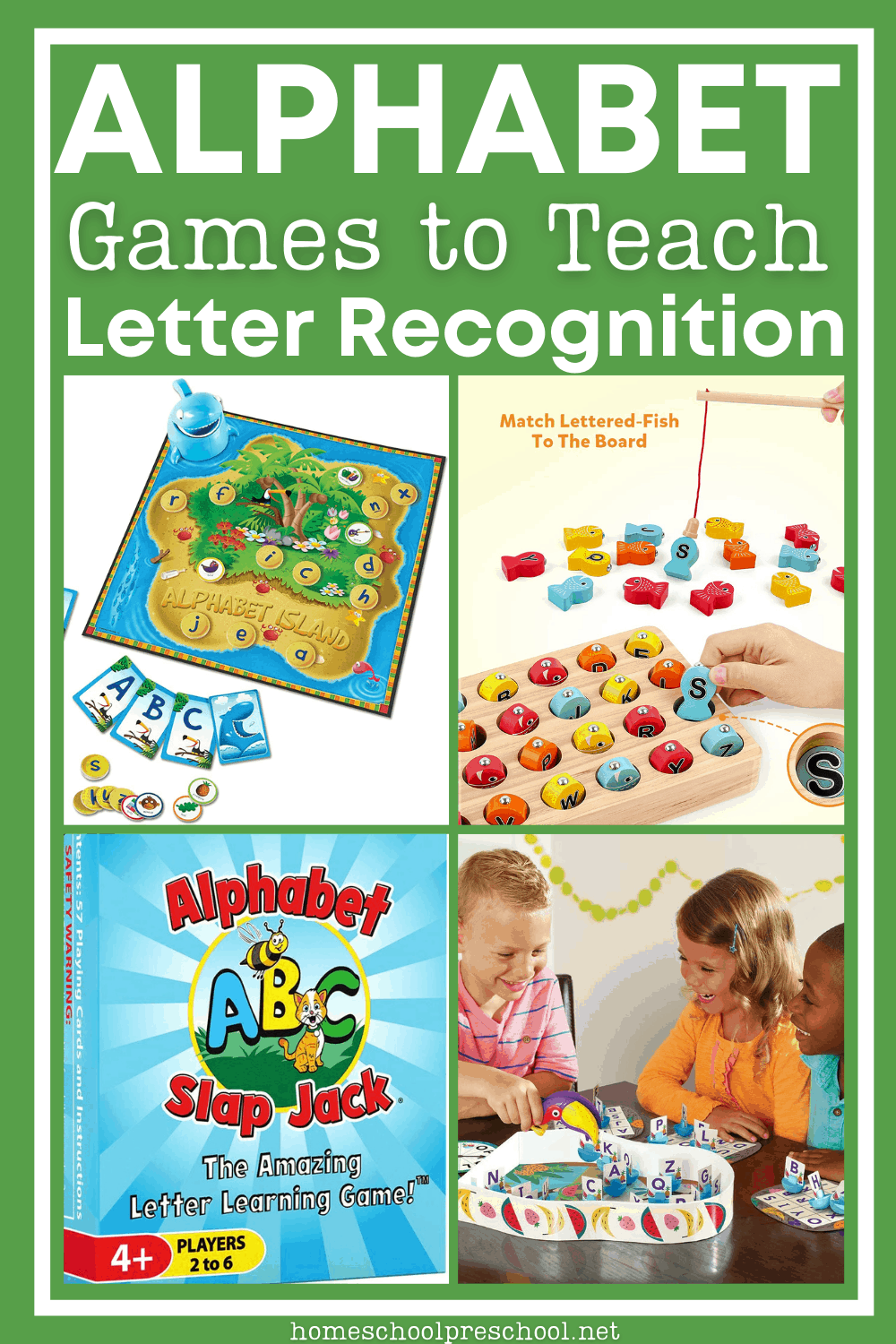
Letter recognition games are a fantastic way to spark your preschooler’s interest in reading and set them up for success in the future.
By making learning fun and interactive, you’ll be helping your child build a strong foundation in language and literacy skills that will serve them well throughout their academic journey.
Whether it’s through classic games like alphabet bingo or newer apps and programs, there’s never been a better time to introduce your child to the world of letters.
So what are you waiting for? Start playing and watch your little one’s love for reading grow!
